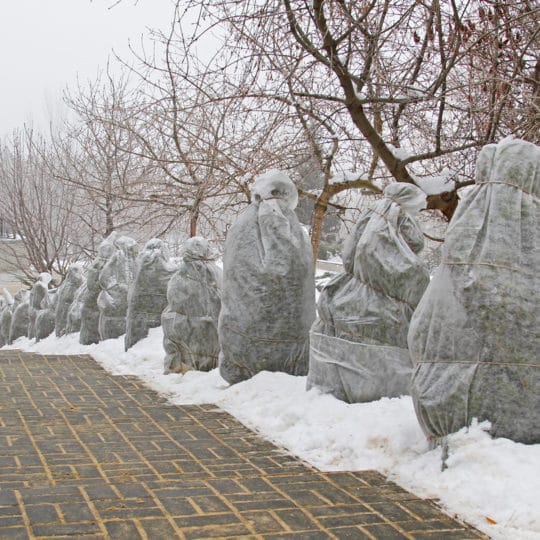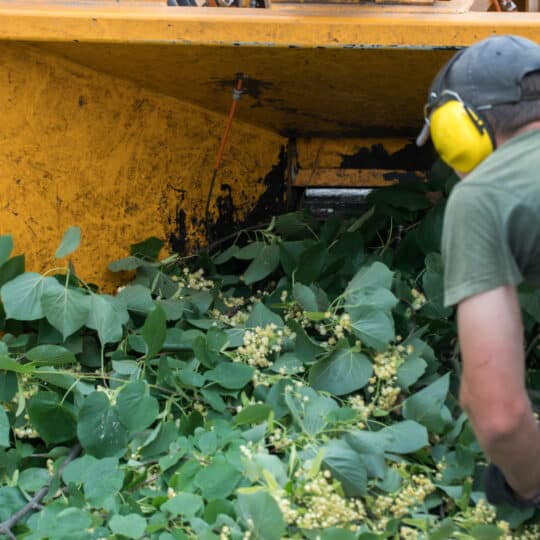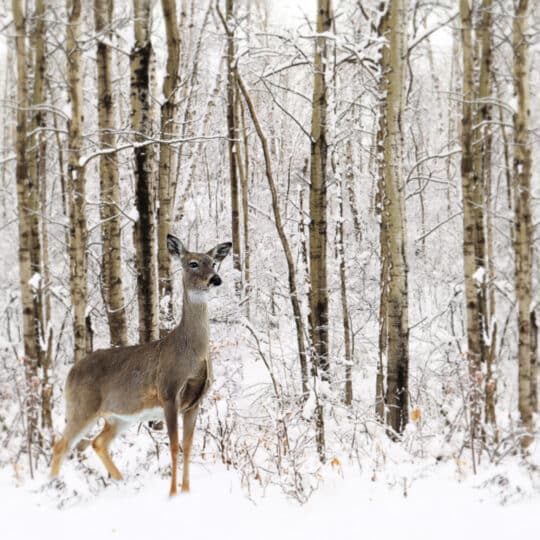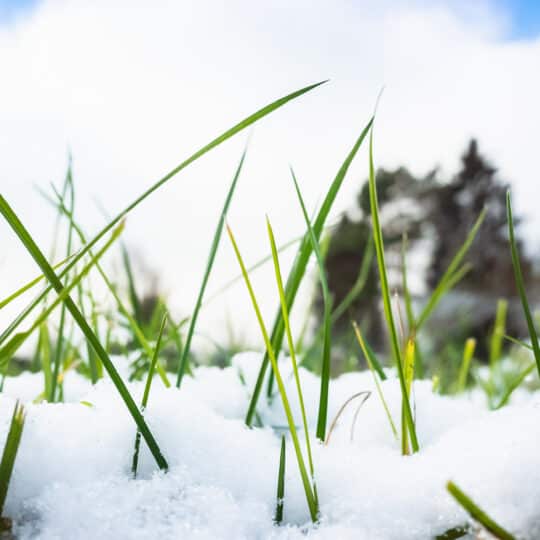Fertilizing your lawn is one important task that should be done multiple times a year—except in winter. Done properly, a well-fertilized lawn can spend the winter dormant and still be storing energy to come back lush in the spring. Find out when you should fertilize your lawn and why winter is not the best time. Read more
Learning Center
Winter is a time for bundling up. What’s cozier than a weatherproof jacket or a nice warm blanket? How about burlap? No? Your tree may think so. One way to help winterize your trees and shrubs is to wrap them to help protect delicate bark and branches from winter’s wrath. Read more
Now that the holidays are over, it’s time to take down the tree—both inside and out. If you decorated a live tree indoors or you have a dead tree outdoors, now’s the time to look into tree removal options. Read more
The holiday season is all about gatherings, food, and warm wishes. Do you know who also wants to get in on the festivities? Pests. All that warmth and food is a pest’s dream come true. Add the fact that guests are coming in and out and possibly dropping crumbs is another ticket to pest paradise. Learn about the different types of pest control services to help ensure your holiday season is merrier and pest-free. Read more
While the weather outside may be turning frightful, your lawn is still delightful to various animals and insects. Learn what winter lawn and garden pests could be frequenting your yard and what to do to help prevent damage. Read more
Health and wellness is a topic that should be top of mind throughout the year, but especially during the winter months. While this is true for those trying to get through cold and flu season, it’s also important for all living things in and around your home, even your lawn. Here are some healthy winter lawn tips to help ensure it’s strong enough to battle its version of cold season. Read more





